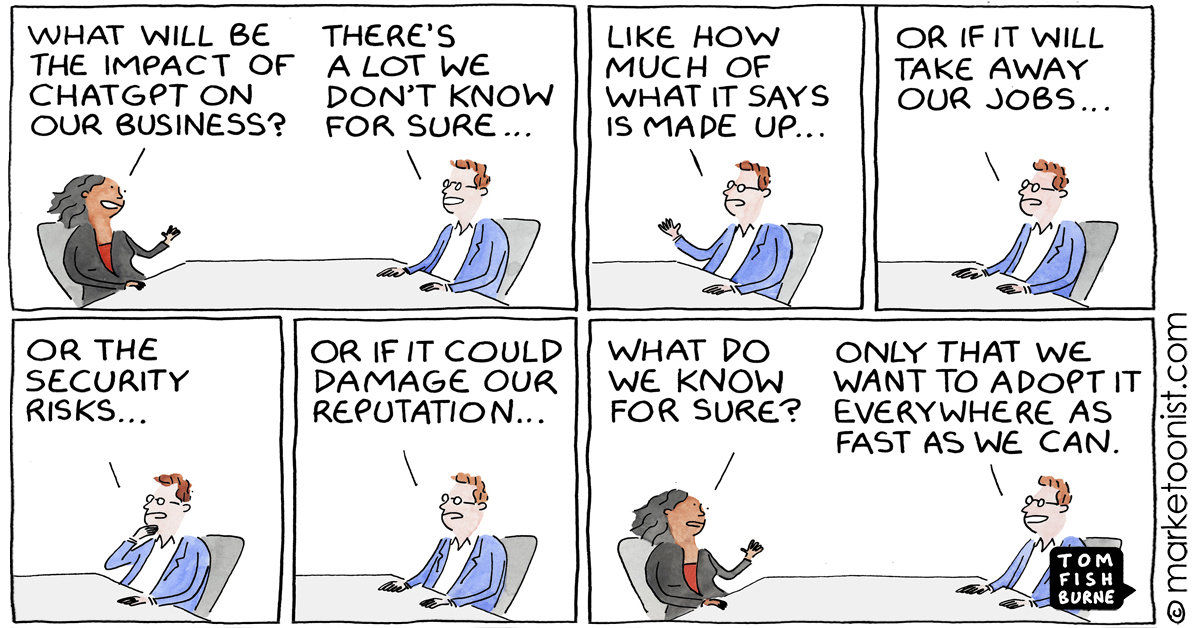Why Enterprise Should Embrace Generative AI
Published on June 19, 2023 — 4 min read
ChatGPT, along other Generative AI technologies, has been a hot topic over the internet. Yet, when it comes to enterprise adoption, the path is not always smooth. Corporate entities, understandably, tend to tread more carefully than their smaller counterparts. Indeed, there are notable cases of well-respected companies that have banned ChatGPT within their organization, citing data security and regulatory concerns. Nevertheless, for the vast majority of enterprises seeking to harness cutting-edge digital solutions, there are several compelling reasons to wholeheartedly embrace Generative AI.

It's foundational, enabling technology
Generative AI holds the promise to act as a foundational, enabling technology for enterprise digitalization. In contrast to machine learning models designed for specific tasks, Generative AI models, especially large language models (LLMs) such as ChatGPT, are far more versatile and adaptable for a wide range of business operations in product development, marketing & sales and customer service. The generative nature of these AI models can provide much-needed new organizational capabilities that are currently not possessed by an enterprise, acting the springboard to long-cherished transformational growth. Consequently, Generative AI should be considered as the cornerstone and catalyst for the enterprise digital strategy.
It's easy to use
Many enterprises grapple with the challenge of talent shortage in data sciences, machine learning and associated realms. The silver lining, however, is that Generative AI technologies like LLMs are delightfully user-friendly. Giants such as OpenAI, Microsoft, Amazon, Google, Nvidia, among others, offer robust commercial models and associated services, which enables both IT professionals and domain experts to interact with Generative AI with ease. In addition, the availability of open-source tools, such as LangChain, Llama Index, Guidance, and more, allow enterprises to integrate Generative AI into their existing IT infrastructure and/or develop their own solutions to build lasting competitive advantages.
It's rapidly improving
Enterprise personnel who have debbled with ChatGPT with work-related queries might have encountered responses ranging from underwhelming to downright absurd. Perhaps they have also come across news articles highlighting its shortcomings in certain professional areas. Such technical glitches are not unexpected for a nascent technology, although tools and ecosystems are being rapidly developed to bridge any existing gaps. More importantly, we need to adopt a forward-thinking mindset on the potentialities of Generative AI so as not to discount the future possibilities, as the models are going through rapid iterations of improvement based on both business use cases and latest research.
It's less scary than you think
Companies and employees may be rightfully concerned about the ramification of Generative AI on their business and workforce. However, the architecture of Generative AI models such as GPT are closely related to existing deep neural network models, rendering them far less formidable than one might assume. Regarding data privacy and security, using commercial AI models hosted by third-parties such as OpenAI does not necessarily lead to higher risk than using other web services and your proprietary information is not automatically "absorbed' by AI.
The worries of Generative AI reminds me the early days of gene-editing technology. There were comparable, if not graver, concerns about unpredictable changes to human genes or exploitation by malicious entities. As the history unraveled, however, the technology has been largely beneficial. It paved ways towards new gene therapies, improved crop yield, and sustainable bio-based material, by visionary individuals and companies who embraced the technology, and in doing so, created new employment and business opportunities. So the overall lesson is that enterprises should always take a science-based approach to understand the nuances and potential impact, and be willing to take risks in a safe and responsible manner.
Summary
In summary, as Generative AI continues its upward trajectory, it presents a golden opportunity for enterprises. By understanding its potential, addressing concerns through informed strategies, and being open to embracing risks responsibly, visionary enterprise can unlock new opportunities, drive innovation, and stay ahead in an increasingly competitive business landscape.
- Generative AILarge Language ModelsGPT